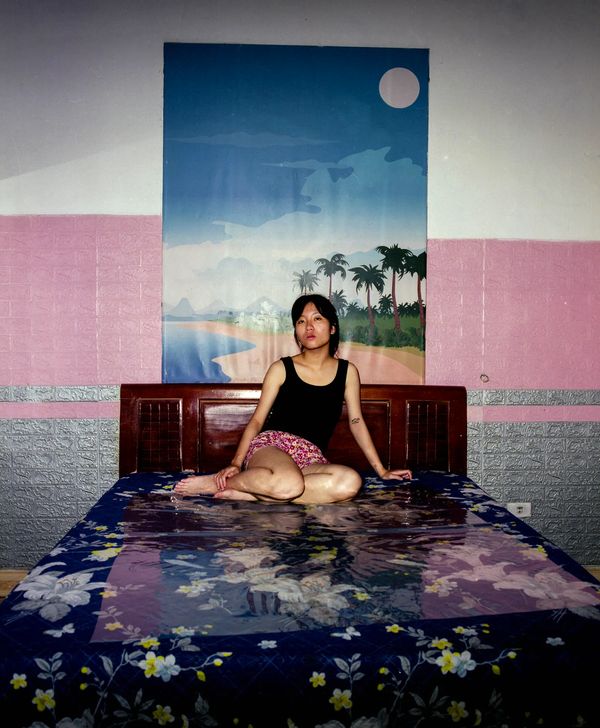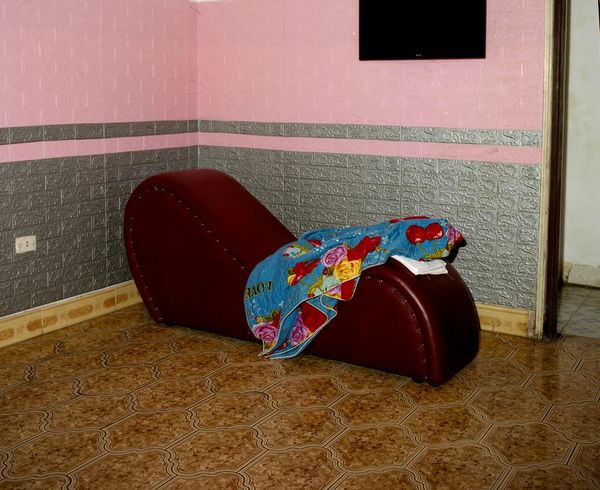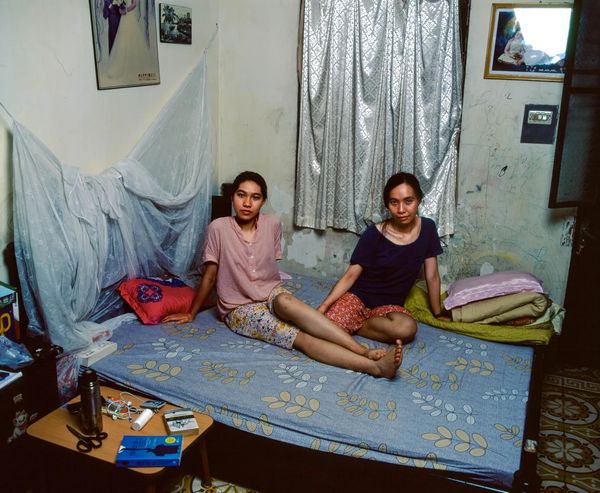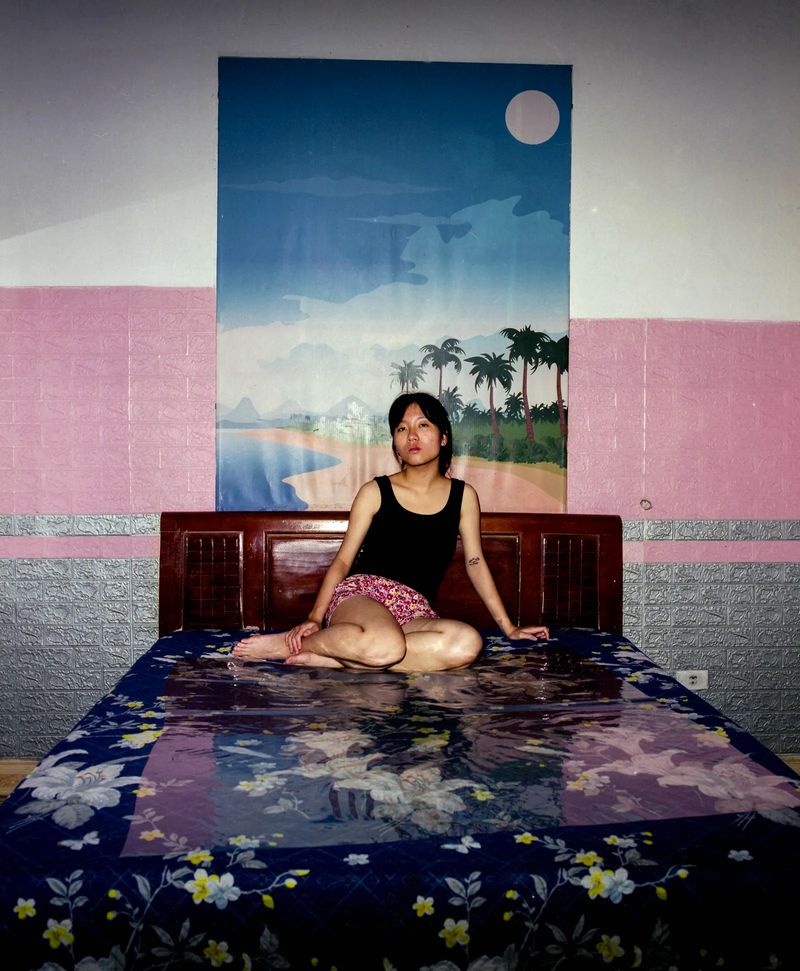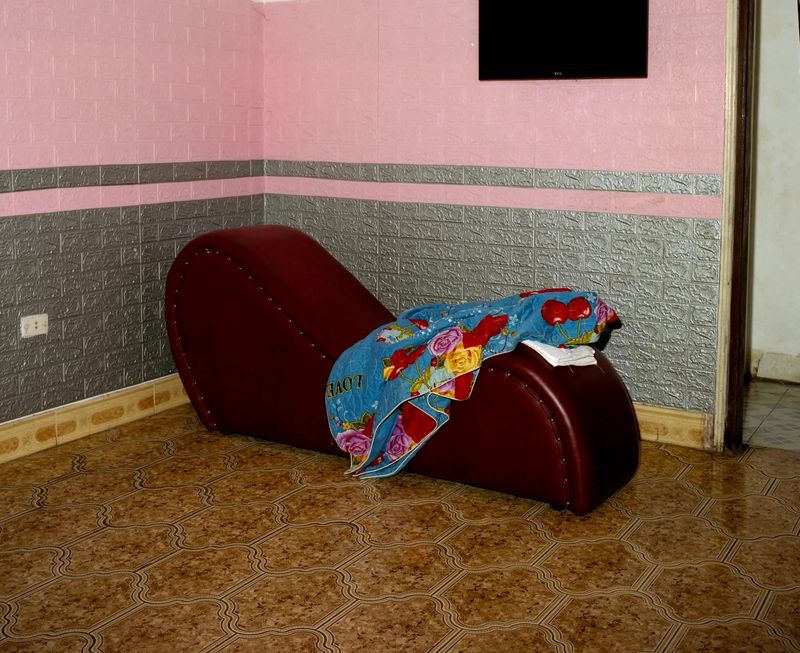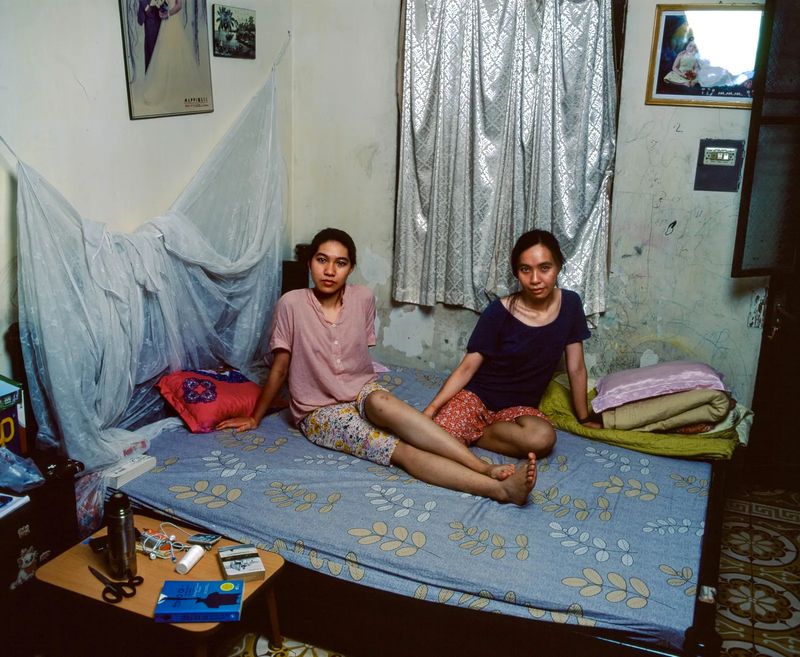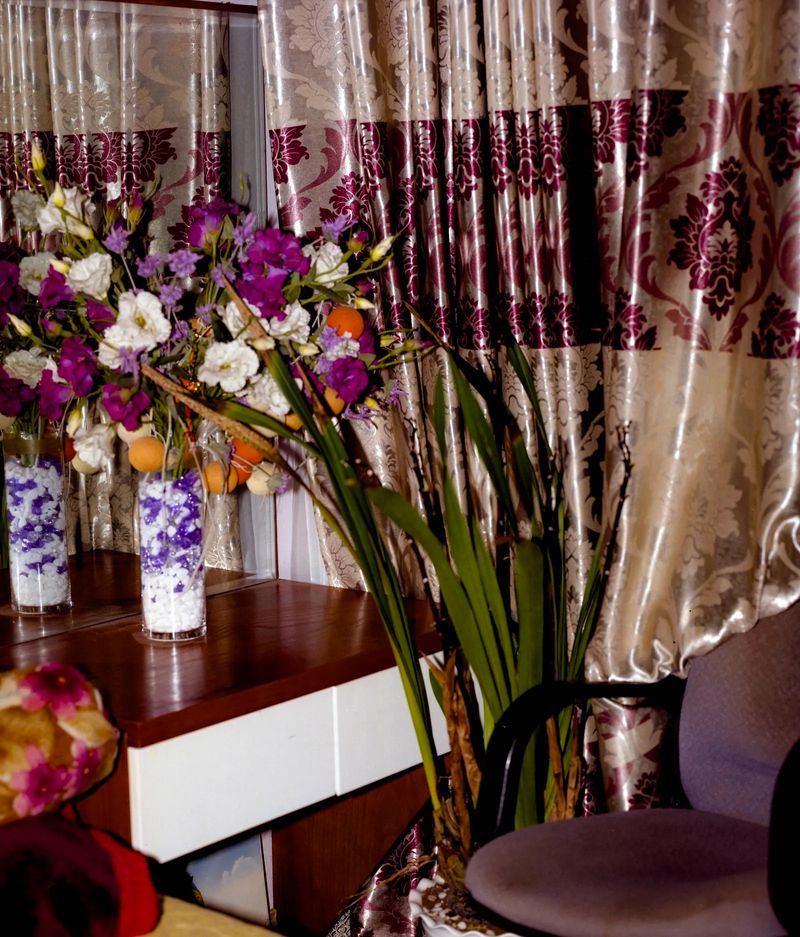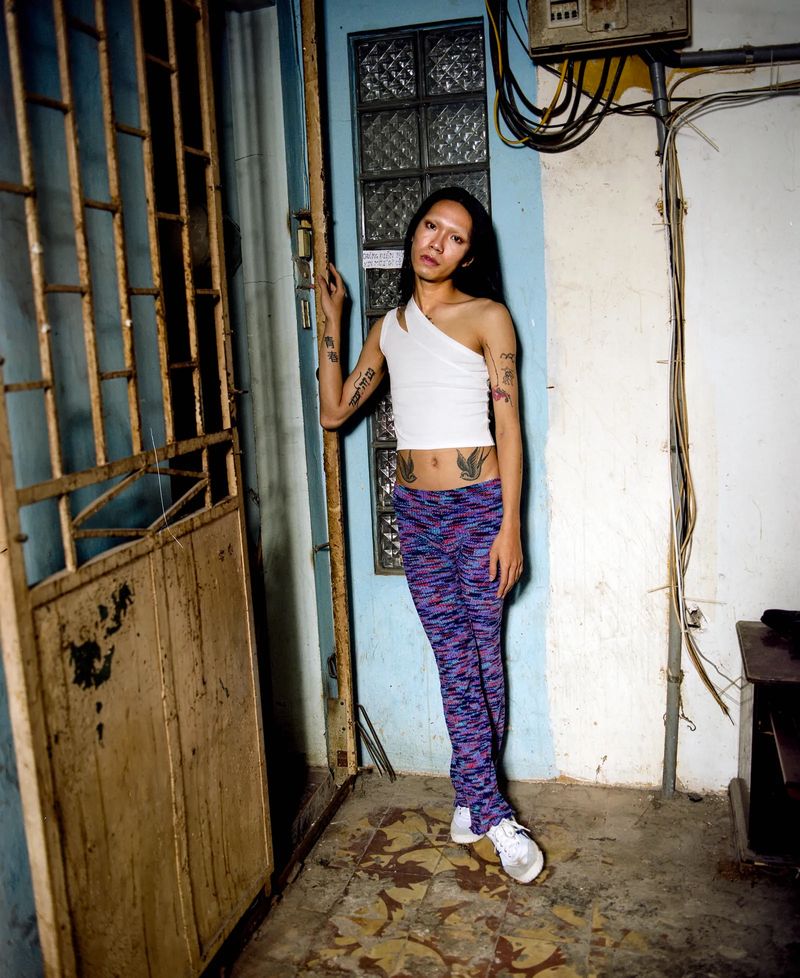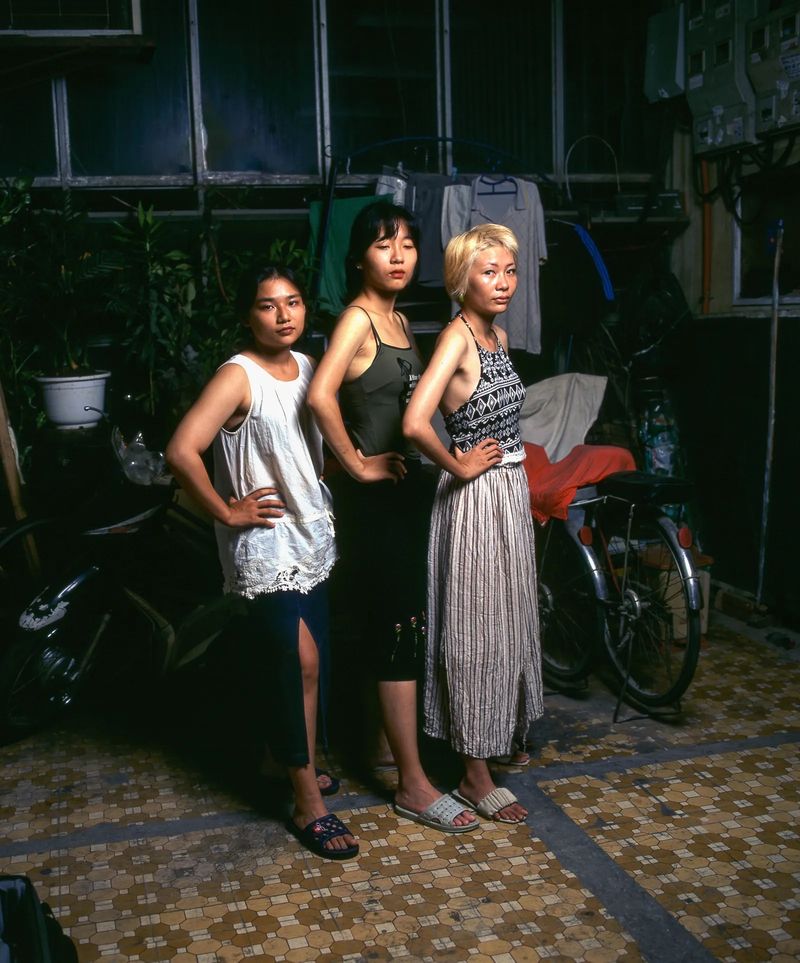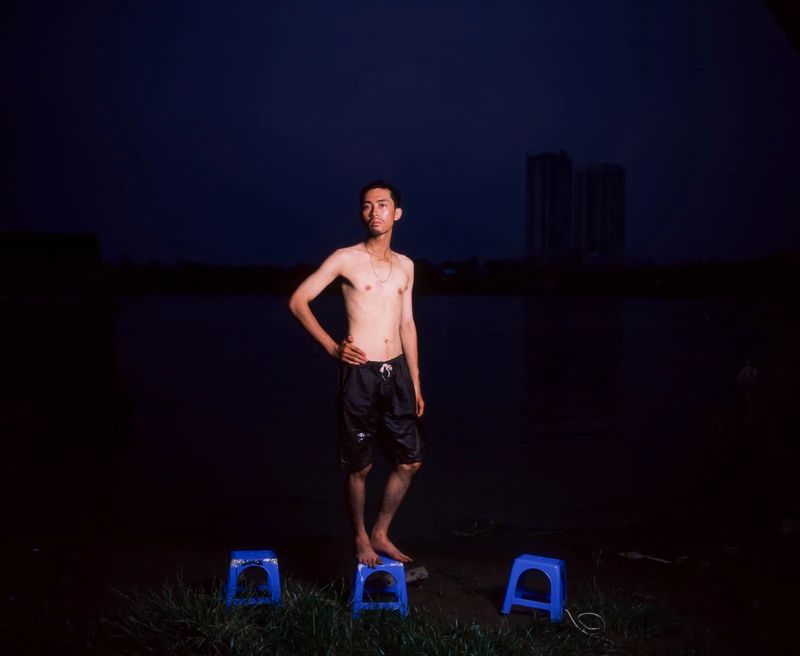Vân-Nhi Nguyễn Explores the Gap of Vietnam Past and Present
-
Published11 May 2023
-
Author
Nguyễn reduces that gap by being more deliberate with her craft—a passion and self-actualization with photography she eventually uses to provide a platform to those ordinary individuals who contribute so much to society, but remain overlooked, “deserving of their space and their spot,” she says.
Nguyễn began directing her camera and inquisitive eye toward close friends. One of the earliest photographs depicts a young woman sitting on a bed in a pink bedroom with a blue background evocative of a holiday scene. Both the sitter and the photographer are in a motel, where rooms are rented by the hour to young or older lovers who consume their encounters away from prying eyes—a place widely despised in the country’s culture.
At the same time, the pink bedroom Nguyen rented reminds her of road trips she took as a child with her family, when they would stop in the modest, unadorned motels, whose bare interiors remind of a dated Vietnamese aesthetic—a sentimental nostalgia carrying her closer to the location she chooses.
The décor and the mood of the room, all become beautiful components for Nguyễn. “One thing that I always take into consideration is that I have to feel I am in love with a place,” she says. It is also crucial to her to form intimate ties with the people she pictures, equally committing to the individuals she photograph and the bond she develops through her act, eventually falling into each other with an interchange of energy. “Places are important, the same [is for] people. You have to be in love with both in order to create an image that satisfies yourself.” Through capturing this moment, her poser and the location become one.
In another image, blue plastic stools left out by people who wish to catch glimpses of the sunset near the Hong River serve as prompts for one of Nguyễn's friend who swiftly steps on them. The lighting worked against them, but the shallow waters could still be seen. The area bears historical significance: despite being neglected by residents and officials, the river is an iconic feature to Hanoi. The juxtaposition of simple elements and what they come to signify creates the force of this photograph: “This is not something so obvious or immediate for someone like him,” says Nguyễn of her friend, “for what he comes to represent in this particular context.” Nguyễn's friend, an ordinary type who’s also gay, exemplifies a society's gradual shift toward a more inclusive way of thinking; the river, one of Hanoi's most famous landmarks, harkens back to tradition.
“People are trying to get rid themselves of their identity as being a Vietnamese person, to adopt the latest media trend they see online,” Nguyễn says. As images, trends, new identities are observed and embraced with significant delay compared to the west, Vietnamese people long for that freedom they seek for themselves, at times still out of reach. If anything deviates from a binary societal construction, individuals may become contemptuous, dismissive, even aggressive, Nguyễn says. “There's no in between, and you have to live with that.”
In a last image, three women stand next to each other. Nguyễn emphasizes that the women are not models, but ordinary people; they can’t pose, they don’t hide behind a performative expression. Still, she is drawn to their interaction, the energy created within them.
Their motionless presence, almost suspended, mimics images of the anti-colonialist female rebellion soldiers in Vietnam taken during the American War, when women involved in a resistance effort were captured. Photographs were employed by American settlers to document the culture they ruled over. The style western settlers adopted to photograph the women did not fit into a traditional documentary technique; nonetheless, it was demeaning in its own way. “When I saw the [original] images, they provoked something strong within me. I felt I have to recreate the images,” Nguyễn says, replicating once again in her shots that same objectifying gaze, wanting to provoke a reaction.
Once again, the juxtaposition brings new meaning: With her friends posing in a Soviet-looking apartment complex and the painful memory of past images of female soldiers, Nguyen is able to reflect on the difficult colonial past her country has endured, and the wounds and resonance still echoing in present days. More broadly, by comparing and contrasting tradition and modernity, representation and reality, in As You Grow Older, Nguyễn establishes a compelling connection between the country's past, the present, and a glimpse into that future that the youthful generation she portrays is leaning into.
All photos © Vân-Nhi Nguyễn, As You Grow Older
--------------
Vân-Nhi Nguyễn is a photographer and designer currently based in Hà Nội, Việt Nam, involved in the fields of art, culture, and fashion. Nguyễn has a deep interest in exploring cultural identities, humanity, and the relationship between person and society. Find her on Instagram and PhMuseum.
Lucia De Stefani is a writer focusing on photography, illustration, culture, and everything teens. She lives in New York. Find her on Twitter and Instagram.
--------------
This article is part of the series New Generation, a monthly column written by Lucia De Stefani, focusing on the most interesting emerging talents in our community.
